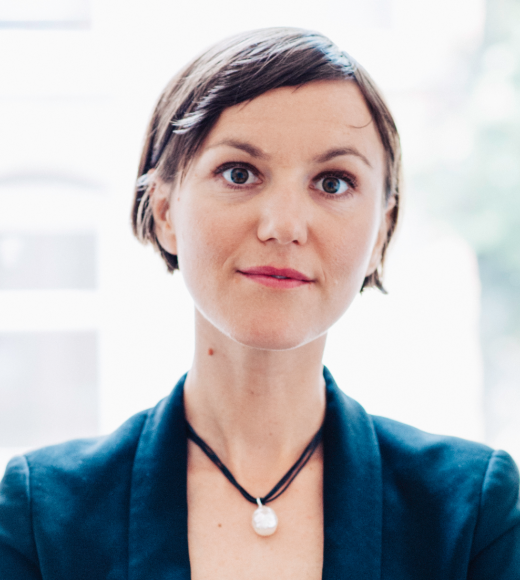
Position Title
Professor
About
Magdalena Wojcieszak, Ph.D. is a Professor of Communication, U of California Davis, an Associate Researcher at the Center for Excellence in Social Science at the U of Warsaw (PL), where she directs the ERC Consolidator Grant NEWSUSE, Affiliate Faculty in the Designated Emphasis in Computational Social Science, and a Member of the Graduate Group in Computer Science, U of California Davis.
Prof. Wojcieszak examines how people select (political) information online, the effects of mass and digital media on extremity, polarization, and (mis)perceptions, and also pro-social interventions to users and platform algorithms. Prof. Wojcieszak has just been awarded an ERC Consolidator Grant for a project NEWSUSE: Incentivizing Citizen Exposure to Quality News Online: Framework and Tools (2023-2028); before she directed ERC Starting Grant EXPO: Exposure to Dissimilar Views: Investigating Backfire Effects at the Amsterdam School of Communication Research, U. of Amsterdam (2018-2023). She also leads several other projects on algorithmic audits and computational interventions to identify and minimize harmful content on YouTube.
Prof. Wojcieszak has (co-)authored ~90 articles in peer-reviewed journals (including Nature, Science Advances, Proceedings of National Academy of Sciences, among others), is an outgoing Associate Editor of Journal of Communication and an incoming Associate Editor of Political Communication.
She is part of an independent research partnership between researchers and Meta to study the impact of Facebook and Instagram on key political attitudes and behaviors during the U.S. 2020 elections, known as the U.S. 2020 Facebook & Instagram Election Study, and of the Misinformation Committee at the Social Science One, first ever partnership between academic researchers and social media platforms.
Prof. Wojcieszak has received several awards for her teaching and research (including being named the 2023 Fellow of the International Communication Association).
Research Focus
Professor Wojcieszak’s research focuses on how people select political information in the current media environment and on the effects of these selections on attitudes, cognitions, and behaviors. She also examines the effects of mass media, new information technologies, and various message types on tolerance, perceptions, and polarization, as related to intergroup relations. Her current interests include ways to minimize selective exposure and biased information processing.
Publications
Teaching
Professor Wojcieszak has been teaching graduate level classes on public opinion, political communication, communication campaigns, and research methods. In particular, she has created an award-winning elective course on Strategic Campaigns: How to Reach and Persuade People in Fragmented Media Environments, and was a core professor for a graduate course Citizens and Public Opinion, both at the University of Amsterdam. She has also designed several graduate (e.g., Political Communication, Media and Persuasion, Research Methods in Communication) and undergraduate courses (e.g., Media Effects, Media and Minorities) at the IE University and IE Business School, Spain. In addition, she has given short lectures and workshops to practitioners.
Awards
Awards and Grants
- European Research Council ERC Starting Grant, Citizens exposed to dissimilar views in the media: investigating backfire effects; 1,500,000€, 2017-present
- Spanish Ministry of Economy, Narrative tools to reduce prejudice. Effects of similarity, imagined contact, empathy and narrative voice; PI Juan José Igartua, University of Salamanca, 34,000€, 2016-present
- Polish National Science Foundation, Persuasion and Misinformation in News PI Konrad Maj, Warsaw School of Social Psychology, 36,000€, 2014
- Amsterdam School of Communication Research, Univ. of Amsterdam; Competitive Internal Funding, Media and Integration, PI M. Wojcieszak, 34,000€, 2013-present
- Polish National Science Foundation Persuasion and Misinformation in News (with Konrad Maj, Warsaw School of Social Psychology), 36,000€, 2014-present
- Spanish Ministry of Science and Innovation - Democratically Important Media Effects, Selective Exposure, and the Forced-Choice Error Problem (with B. Bimber, L. Feldman, L. Newman, & N. J. Stroud), 45,000€, 2010-2013
- Spanish Ministry of Science and Innovation, symposium organization - Transnational Connections: Challenges and Opportunities for Public Opinion and Political Communication, 15,000€, 2011
- Center for Sociological Studies, Ministry of the Presidency, Spain, What Politics do we want? Support for Stealth Democracy in Spain (with Joan Font, CSIC and Clemente Navarro, Univ. Pablo de Olavide, Spain), 2010-2011
- 2010 – 2012
- Junta Castilla y Leon, Spain, Political Effects of Forced versus Selective Exposure to News Media (with B. Bimber, L. Feldman, L. Newman, & N. J. Stroud), 16,000€, 2010-2012
- Spanish Ministry of Science and Innovation, symposium organization - Transnational Connections: Challenges and Opportunities for Political Communication, 20,000€, 2010
- Junta Castilla y Leon, Spain, symposium organization - Transnational Connections: Challenges and Opportunities for Public Opinion and Political Communication, 10,000€, 2010
Honors
- Honorable mention, Kaid-Sanders Best Article of the Year Award, Political Communication Division, International Communication Association, 2017
- Young Scholar Award, International Communication Association, 2016
- Elected Board Member at Large, International Communication Association, 2012-present
- Co-laureate by Polish National Science Foundation (PNSF), 2009-2013
- Laureate by Spanish Ministry of Science and Innovation, 2010-2013
- World Association of Public Opinion Research Outstanding Paper Presentation, 2012
